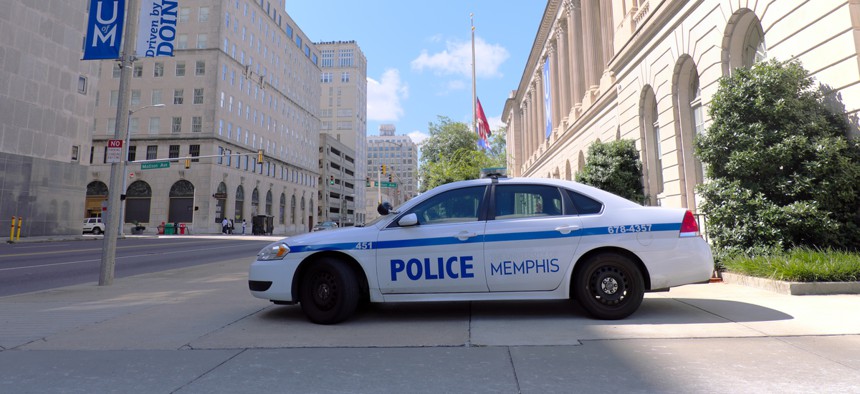Tennessee Using Federal Coronavirus Funds for Police Training

A police car in Memphis, Tennessee. Shutterstock

Connecting state and local government leaders
The state will spend $300,000 of its federal funding to assist local police agencies in training new recruits.
Tennessee will use $300,000 in federal coronavirus funding to pay for training of new police recruits. The money will pay for 90 cadet scholarships for the Tennessee Law Enforcement Training Academy, covering the portion that local departments would normally have to fund, Gov. Bill Lee recently announced.
The push to help train more police officers came as part of a series of recommendations that Lee took from the state’s Law Enforcement Reform Partnership, a group of law enforcement leaders, business owners, and two state lawmakers convened in July and tasked with suggesting reforms to strengthen policing policies and improve officer training. Community leaders and protesters who have agitated to talk to the governor about criminal justice issues weren’t included in the group.
Lee said that he was “confident the outcomes of this partnership will help ensure our law enforcement officials are effectively protecting communities across the state while serving every Tennessean with dignity and respect.”
In the group’s final report, they wrote that scholarships to the police academy would “assist agencies in hiring the best candidates for the job, regardless of the budget implications of sending new hires through Basic Police School.”
Police recruits who attend basic training at the Tennessee Law Enforcement Training Academy are already employed by a local or state law enforcement agency. Those agencies are responsible for $3,300 in training fees. Local law enforcement agencies will be able to access the scholarships in 2021, with priority to those “with the greatest need.”
“The need for these scholarships has never been greater due to increased turnover, smaller candidate pools, and implications to local government budgets due to Covid-19,” wrote the group in their report.
Kevin Watkins, the communications director for the Tennessee Department of Commerce and Insurance, said that the state decided to invest money from the federal CARES Act in the scholarships after officials heard that law enforcement agencies had cut spending on training as local budgets became increasingly constrained by the coronavirus downturn.
Cities in some other states have also spent federal coronavirus money on police, including for personal protective equipment and training. In Honolulu, $32 million, or roughly 8% of the city’s CARES Act funding, went to police, angering some local council members who wanted to see more money spent on direct assistance for families.
A lot of the federal coronavirus funding channeled to states and cities has so far gone toward helping small businesses, low income individuals, schools, and struggling health care facilities.
The spending in Tennessee comes as community organizers in some cities are pushing for less investment in police departments, part of a broader national movement to rethink the amount of city and state budgets that go towards policing, which was sparked by the killing of George Floyd at the hands of Minneapolis police in May.
Theeda Murphy of No Exceptions Prison Collective, a grassroots group that has been organizing in Nashville to divest money from the police department and invest instead in education, access to housing, and health care, called the use of federal coronavirus funding for increased police training “the wrong move.”
“People need direct assistance. People are being evicted. People aren't working because businesses are closing,” she said. “This money needed to be directed to helping people. Our police budgets are already over-bloated. They don't need any more money.”
Emma Coleman is the assistant editor for Route Fifty.

NEXT STORY: Wildfires’ Toxic Air Leaves Damage Long After the Smoke Clears





